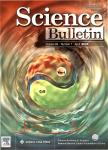Bacterial peptide deformylase inhibitor PMT analogs inhibit cancer cell growth by interacting with human peptide deformylase
Bacterial peptide deformylase inhibitor PMT analogs inhibit cancer cell growth by interacting with human peptide deformylase作者机构:College of Pharmacy Seoul National University Seoul 151-742Korea College of Pharmacy CHA University SeongnamGyeonggi-do 487-010 Korea Division of Magnetic Resonance Korea Basic Science InstituteOchang Campus Seoul Chungcheongbuk-Do 363-883 Korea Promeditech Ltd Seoul National University Seoul 151-742Korea
出 版 物:《Chinese Science Bulletin》 (科学通报(英文版))
年 卷 期:2014年第59卷第32期
页 面:4274-4282页
核心收录:
学科分类:1002[医学-临床医学] 100214[医学-肿瘤学] 10[医学]
基 金:supported by the National Research Foundation of Korea(NRF)funded by the Korean government(MEST)(2012R1A2A1A01003569&20110001207) the Korea Healthcare technology R&D Project,Ministry for Health&Welfare Affairs,Korea(A092006) supported by the Seoul Regional Small and Medium Business Administration(S1025301),in part by the 2011 BK21 project for Medicine,Dentistry,and Pharmacy
主 题:相互作用 抑制剂 类似物 PMT 癌细胞 类肽 细胞生长 细菌
摘 要:Potent inhibitors of human peptide deformylase(HsPDF)were screened using known PMT analog inhibitors of bacterial peptide ***-three species of PMT analogs that are non-peptidyl bacterial PDF inhibitors like actinonin were selected using virtual screening *** species out of 43 that could bind to HsPDF were selected and their antitumor activities were *** them,four species(PMT-172,PMT-173,PMT-199,and PMT-201)showed excellent growth inhibition of cancer cell in the MTT ***-PMT binding was confirmed through a1H-CPMG-T2filter NMR experiment leading to a significant change in peak intensity for PMT-172 and *** results suggest that PMT analogs could possibly interact with HsPDF and be a novel anticancer drug candidate.



